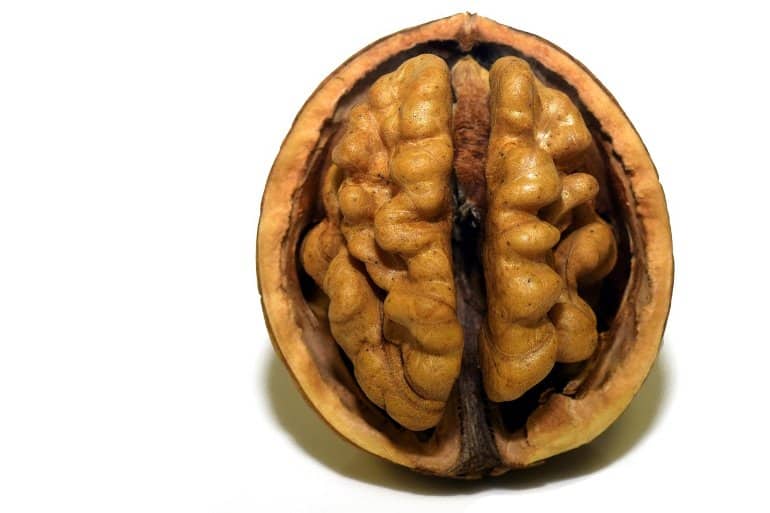Summary: Scientists have called for a consensus on which cognitive tests to use when assessing the impact of nutrition on brain function They recommend reducing the number of tests and standardizing reporting guidelines, which could enable researchers to pool data and make more confident decisions about how diet affects cognition over the life course.
Source: IAFNS
How can we better understand how what we eat affects our brain health? And how does our diet affect brain function as we age?
Scientists that study cognition often use different approaches, tests and even ways of thinking about the area.
But a new paper answers a call from the 2020 Dietary Guidelines Advisory Committee report to address “inconsistent validity and reliability of cognitive test methods.” These limitations constrain the ability to make firm conclusions about diet and cognition over the life course.
Optimizing nutrition can maintain and possibly even enhance cognitive functions known to be affected by aging, such as memory and processing speed. Evidence has shown that nutrition is associated with changes in cognition from before we are born into our old age.
Cognition includes attention, learning, memory and executive functions such as planning and reasoning. While there are many tests of these cognitive skills, there is no consensus on which to apply, and many different ways they can be implemented in studies.
Because of the importance of learning more about nutritional interventions that might affect cognition, IAFNS convened experts to discuss cognitive task selection in nutrition research.
The group was charged with suggesting research pathways that could inform dietary guidance for cognitive health. The experts screened existing reviews to understand more about what cognitive tasks were being measured and if the tests used were reliable and valid.
The expert group agreed that validated tests do exist that can be used to examine the effects of nutrition on cognition. There was less agreement on whether, for example, verbal memory or working memory is more sensitive to what we eat.
In addition, some of the review literature urged full batteries of cognitive tests while others warned that people in the studies may get frustrated with too many testing tasks, eroding their accuracy.

Reducing the differences and number of cognitive tests so that scientists can combine measures could result in more confident decisions about diet and thinking over the life course, according to the authors.
That and other strategies are outlined in the paper, “Advancing Dietary Guidance for Cognitive Health: Focus on Solutions to Harmonization of Test Selection, Implementation and Evaluation,” which appears in the journal Advances in Nutrition. Standard reporting guidelines and cognitive test parameters would also be valuable additions, the authors say.
Some of the experts represented government agencies in different countries that described how they handle requests to place “health claims” about cognition on food products, enriching the discussion about the types of evidence that are accepted in different regulatory regimes.
According to the paper, if the suggested: “methods and practices were implemented universally by researchers in the field, and large datasets could subsequently be pooled to examine questions relating to nutrition and cognition across the lifespan, this could go a long way towards enabling firm recommendations from the dietary guidelines committees.”
About this diet and cognition research news
Author: Steve Gibb
Source: IAFNS
Contact: Steve Gibb – IAFNS
Image: The image is in the public domain
Original Research: Closed access.
“Advancing Dietary Guidance For Cognitive Health—Focus On Solutions To Harmonize Test Selection, Implementation And Evaluation” by Romijn AR et al. Advances in Nutrition
Abstract
Advancing Dietary Guidance For Cognitive Health—Focus On Solutions To Harmonize Test Selection, Implementation And Evaluation
This perspective article is a product of a workshop of experts convened by the Institute for the Advancement of Food and Nutrition Sciences (IAFNS), a nonprofit organization that brings together scientists from government, academia, and industry to catalyze science relevant to food and nutrition for public benefit.
An expert group was convened in March 2022 to discuss the current issues surrounding cognitive task selection in nutrition research, with a focus on solutions toward informing dietary guidance for cognitive health, to address a gap identified in the 2020 United States Dietary Guidelines Advisory Committee report, specifically the “considerable variation in testing methods used, [and] inconsistent validity and reliability of cognitive testing methods.”
To address this issue, we first undertook an umbrella review of relevant reviews already undertaken; these indicate agreement on some of the issues that affect heterogeneity in task selection, and on many of the fundamental principles underlying the selection of cognitive outcome measures.
However, resolving the points of disagreement is critical to ensuring a meaningful impact on the issue of heterogeneity in task selection; these issues hamper the evaluation of existing data for informing dietary guidance.
This summary of the literature is therefore followed by the expert group’s perspective in the form of a discussion of potential solutions to these challenges, with the aim of building on the work of previous reviews in the area and advancing dietary guidance for cognitive health.







